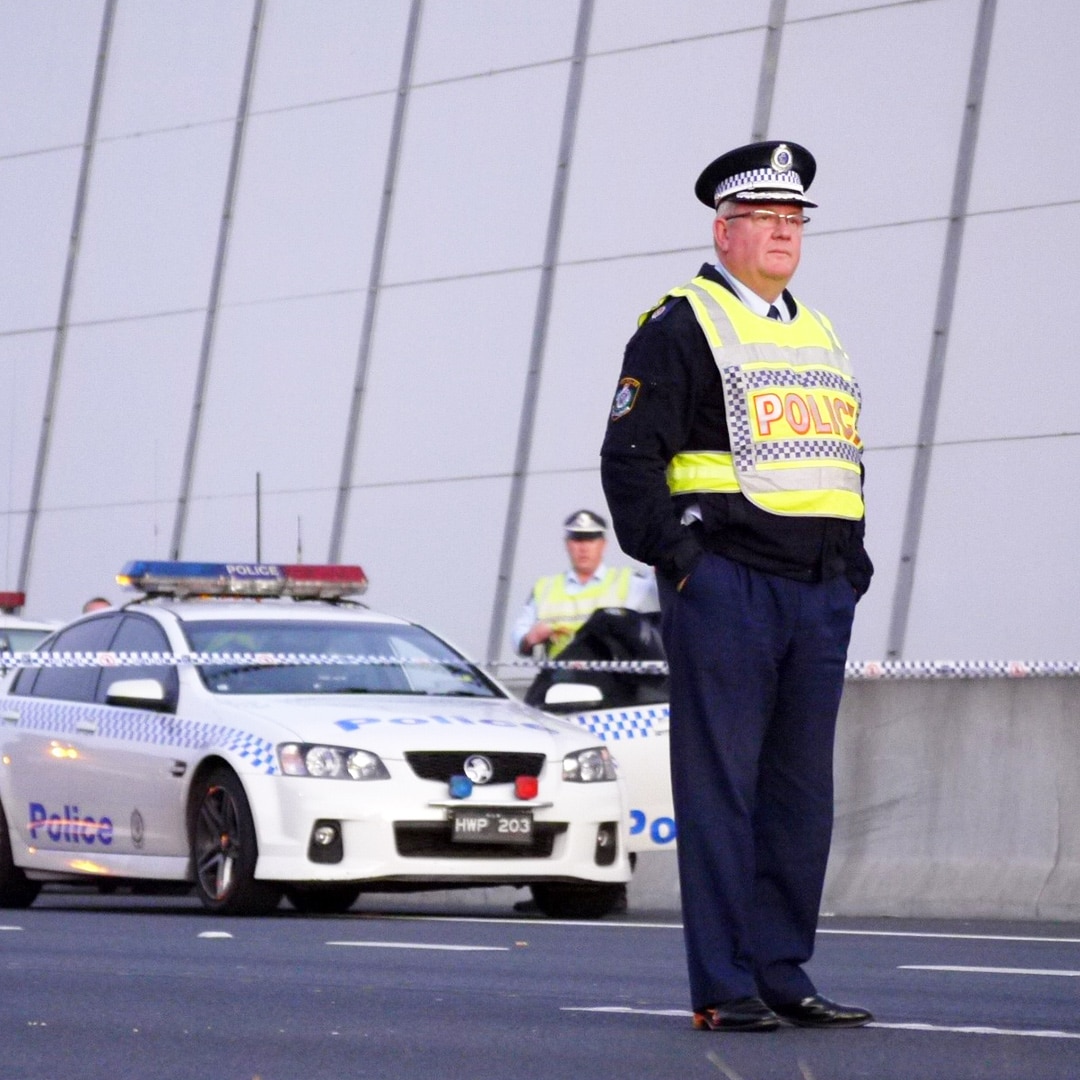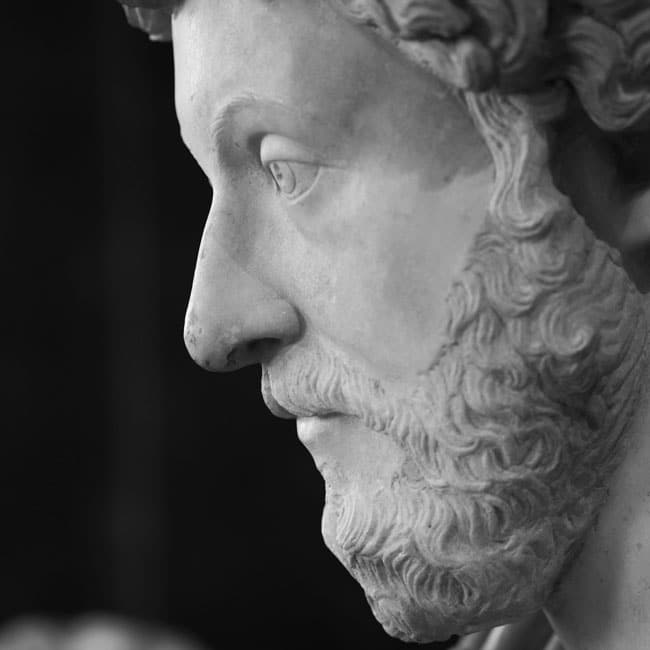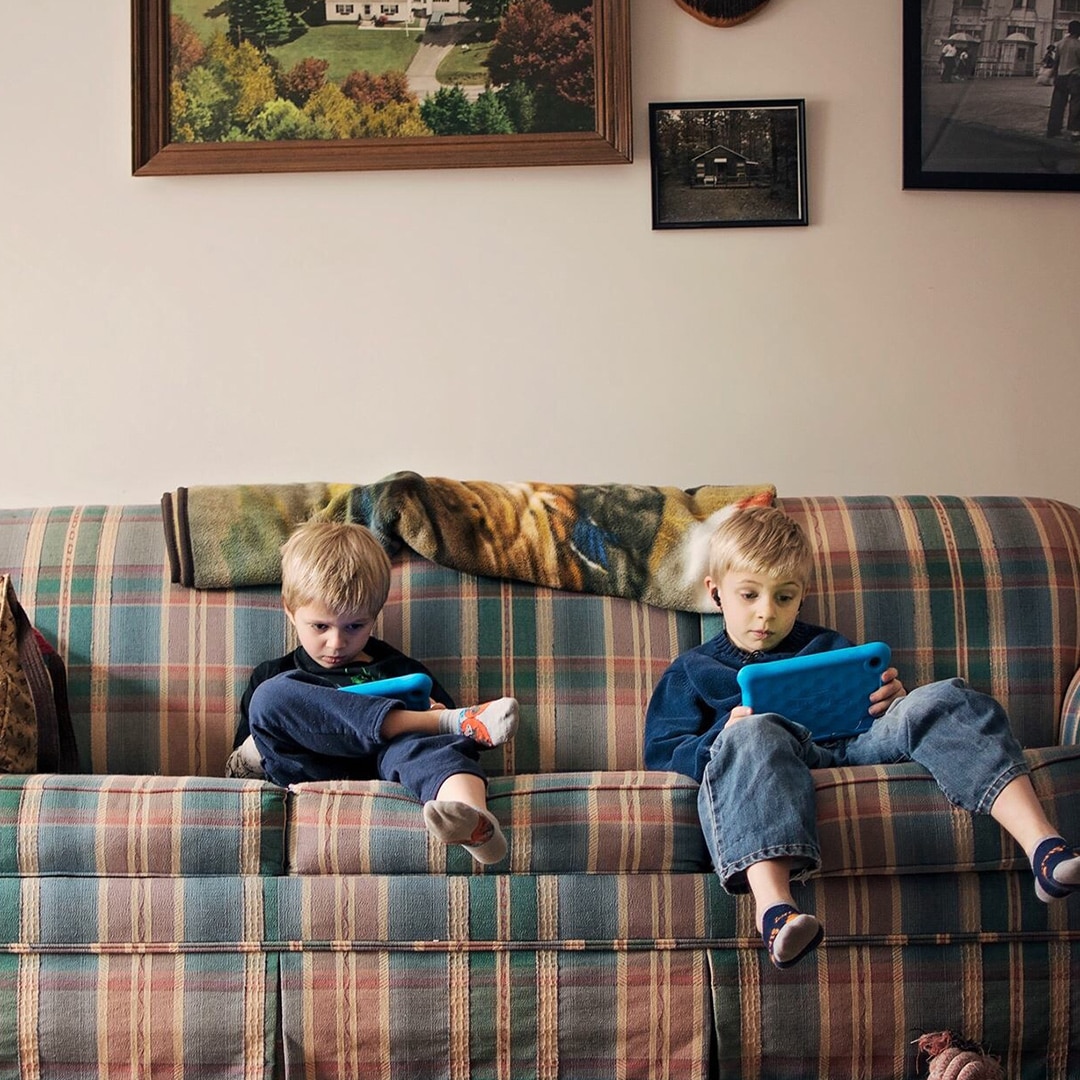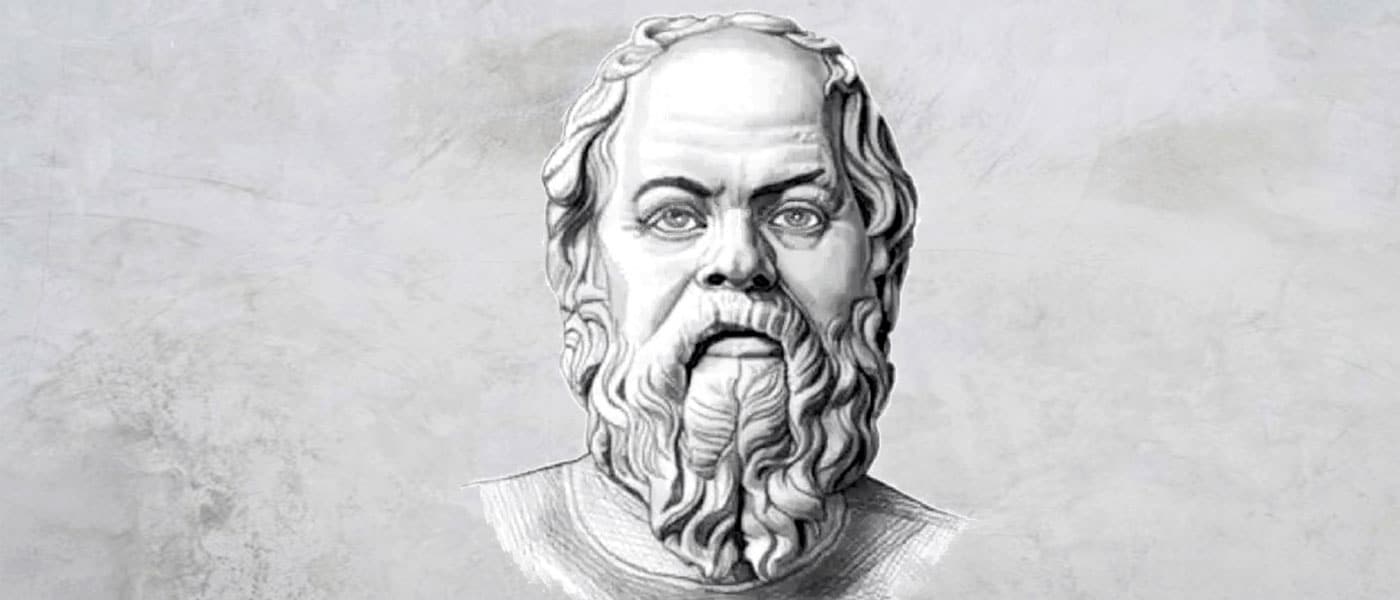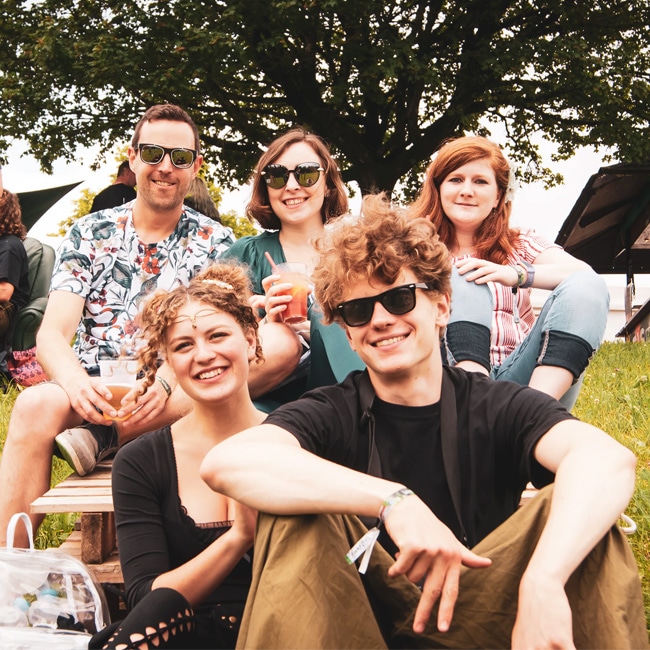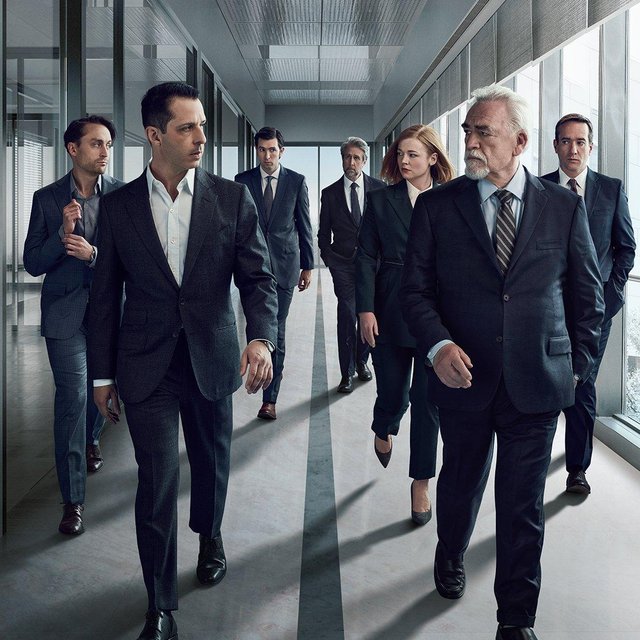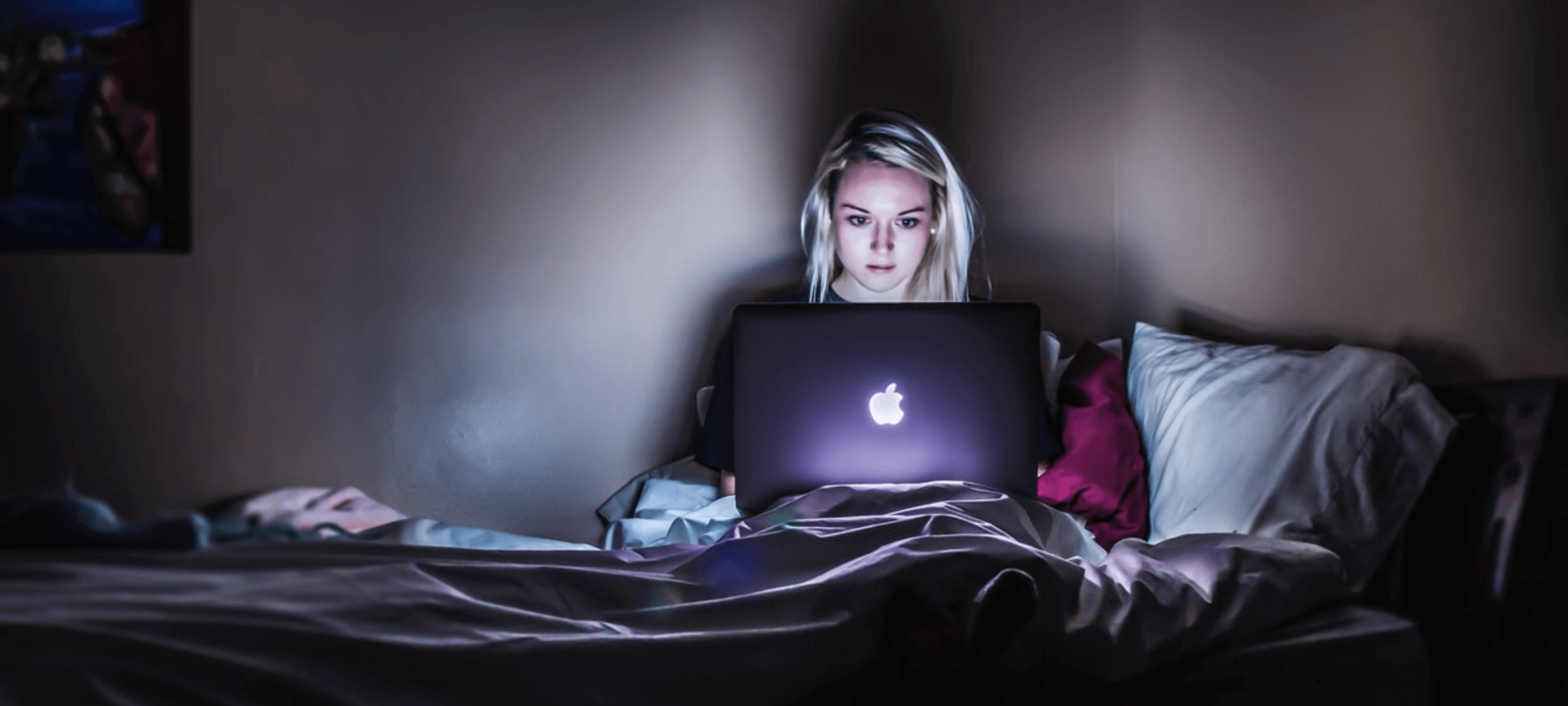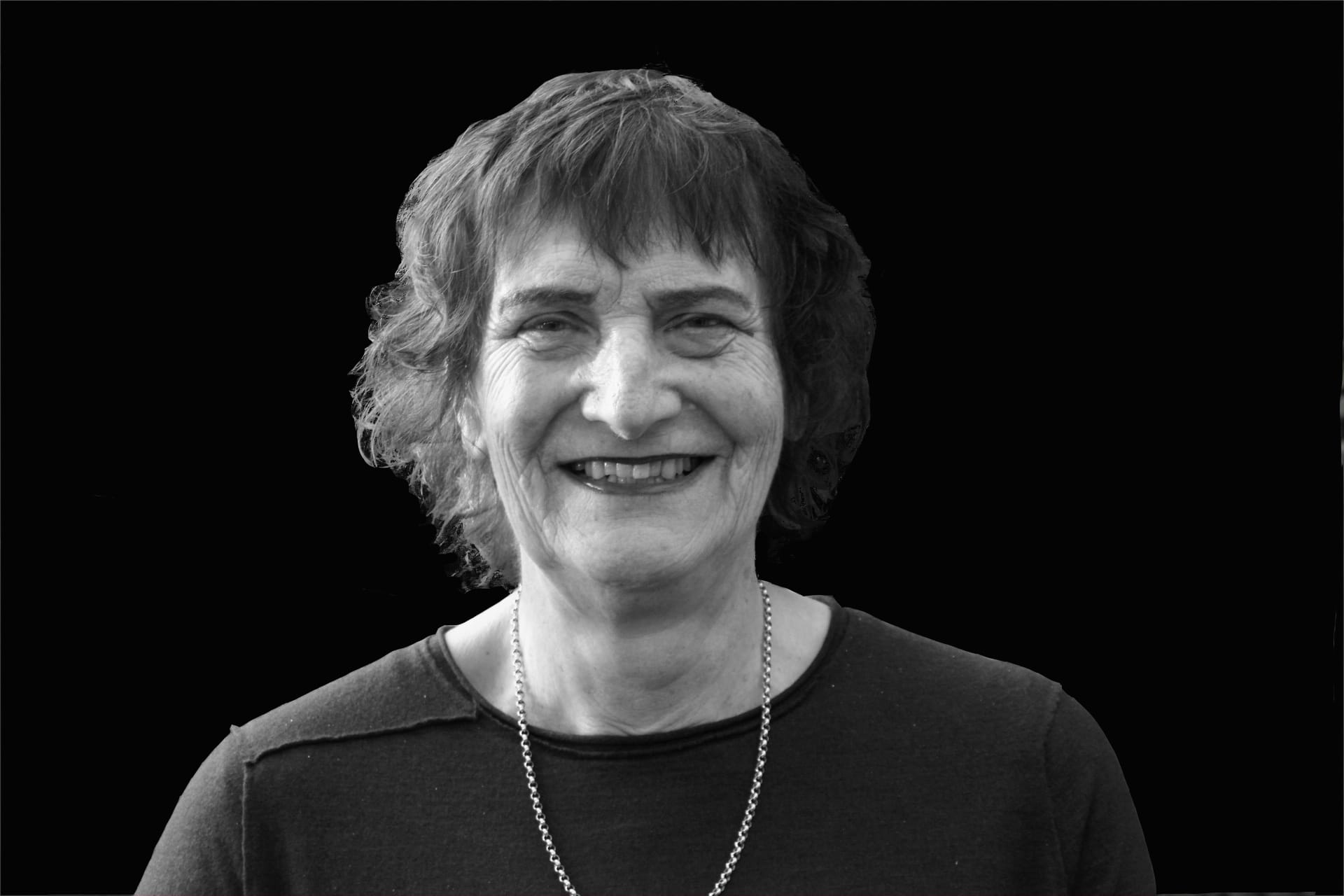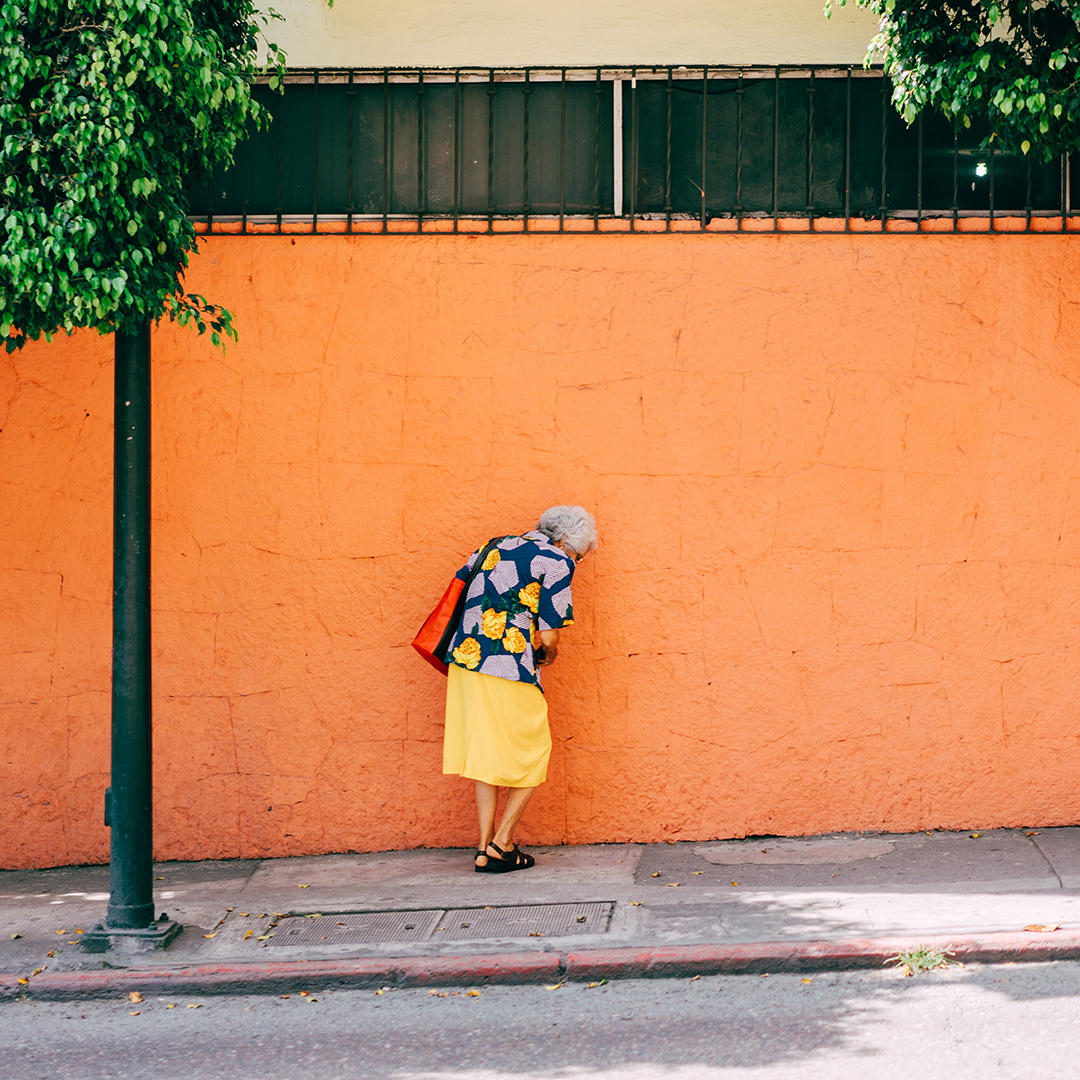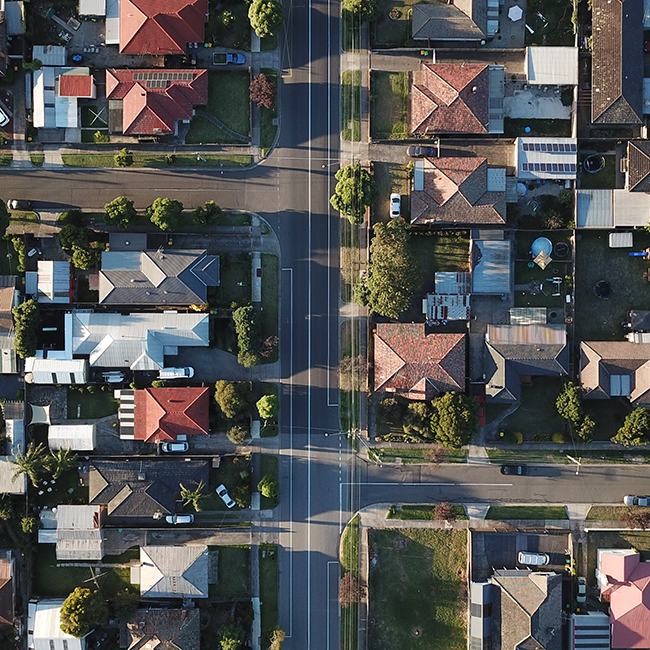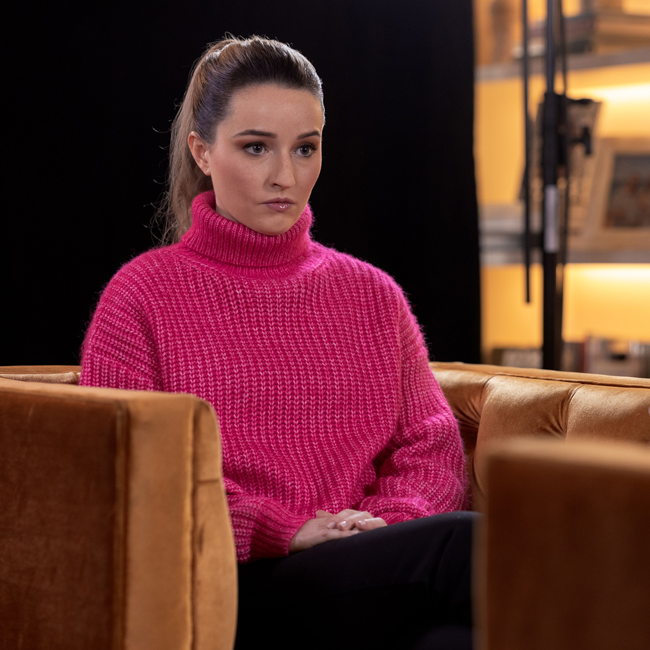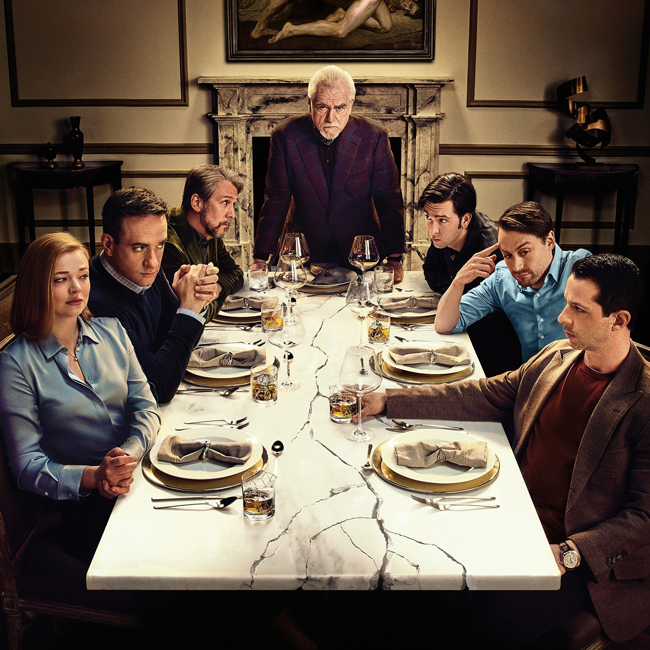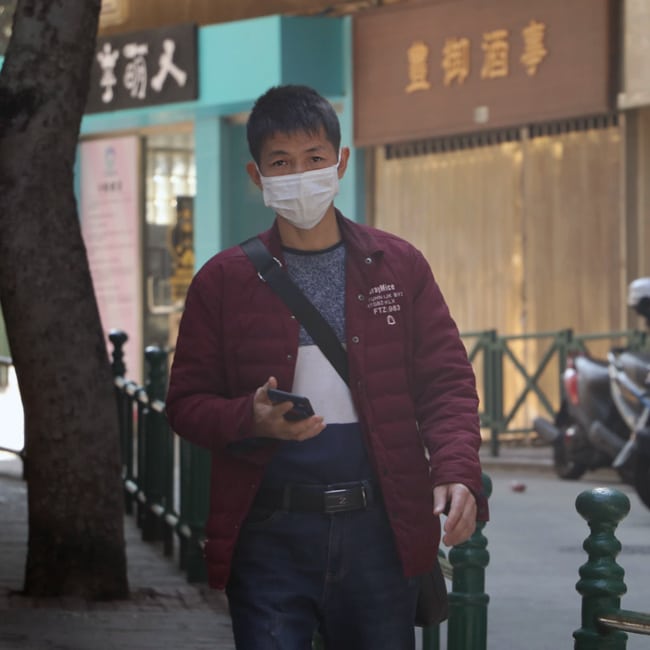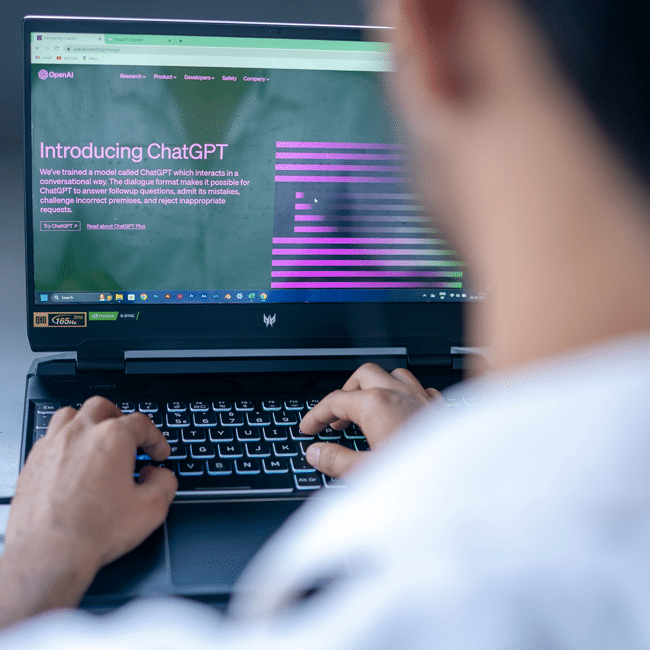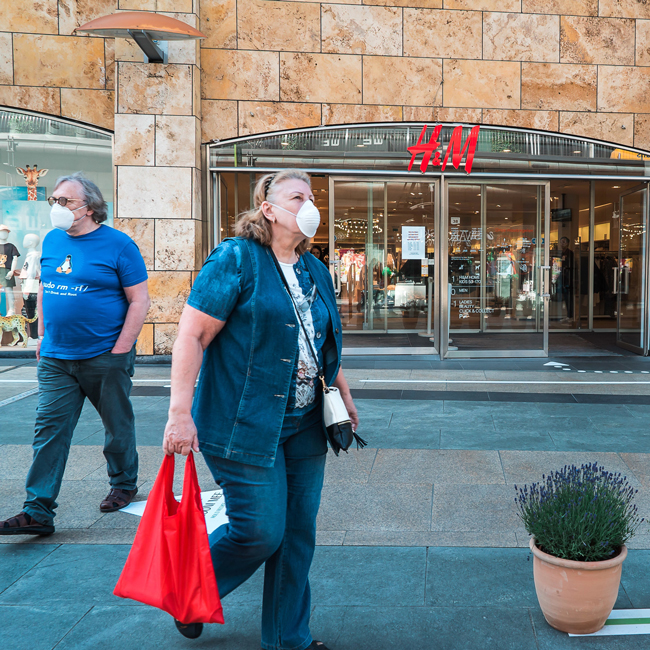There’s more than lives at stake in managing this pandemic

There’s more than lives at stake in managing this pandemic
Opinion + AnalysisHealth + WellbeingPolitics + Human RightsRelationships
BY Matthew Beard The Ethics Centre 3 APR 2020
Imagine a parallel universe somewhere, one without a pandemic. What would you be spending this week concerned with? What social and political issues would you be wrestling with? How would you be spending your day?
Ironically, my parallel life looks very similar. Locked in a room, thinking a lot about pandemics. I’m not an epidemiologist or a public health expert though – in my parallel universe, I’m preparing to run a thought experiment for The Festival of Dangerous Ideas: The Ethics of the Apocalypse.
The basic premise is to find out whether, facing a couple of end-of-the-world scenarios, the audience can save the human race without losing their humanity in the process. I won’t give away how the event works or is scored, but there are a bunch of different victory conditions – survival is a necessary condition of success, but alone, it’s not sufficient.
That point bears repeating as we live through a pandemic of our very own: survival is a necessary, but insufficient condition for success.
By focusing solely on what is going to guarantee success or best facilitate a flattening of the curve and minimise deaths, we risk permitting a political and social environment that we would, in that parallel universe, reject outright.
Over the last few weeks, as Australia’s containment measures around COVID-19 have grown increasingly strict, there’s been a widespread movement demanding an immediate lockdown. #Lockusdown and other variations have trended on Twitter, and major mastheads have called for increasingly severe policing measures to manage the pandemic. Writing for The Guardian, Grattan Institute CEO John Daley wrote:
“There is no point trying to finesse which strategies work best; instead the imperative would be to implement as many as possible at once, including closing schools, universities, colleges, public transport and non-essential retail, and confining people to their homes as much as possible.
Police should visibly enforce the lockdown, and all confirmed cases should be housed in government-controlled facilities. This might seem unimaginable, but it is exactly what has already happened in China, South Korea and Italy.”
Similar comments have been made by other public commentators in support of such measures, including the ABC’s Norman Swan. Swan has pointed to the efficiency with which China were able to control the spread through draconian measures – including in one case, welding people inside their apartment building.
Imagine in a pre-COVID world, suggesting a liberal democracy like Australia look to the authoritarian state of China for political guidance. Yet, this is what happens when we reduce all things to a single metric: the goal of keeping people at home and flattening the curve of new infections. It is easy to conceptualise. We can visualise what it involves and we can imagine the benefits it confers.
However, whilst this logic is comforting – especially in times when fear and uncertainty are rife – it places us dangerously close to the crude and morally repugnant catch cry: the ends justify the means.
In NSW, new laws and extreme penalties aim to enforce self-isolation regimes – as John Daley’s piece suggested. The maximum penalties for leaving your home without a reasonable excuse (of which sixteen are listed) are six months imprisonment or a fine of up to $11,000.
Are you cooped up in your share house, finding it impossible to work? If you choose to go to the park, you’ll face a severe penalty. Considering using the time your teenager has off school to rack up some learner driving hours by leaving the city and heading to the mountains for a bushwalk? Want to do a drive-by birthday celebration in lieu of an actual party? All of them are now subject to police enforcement. Do any of them, and you’re potentially breaking the law.
There are still those who will argue that it’s good these activities have been made illegal. After all, if you go to the park and sit at a bench, you might pick up coronavirus from someone who was just sitting there, or leave some behind for somebody else. If you go for a drive, you may need to stop for petrol, or break down and need mechanical assistance… more exposures means more risk for vulnerable Australians. The elderly, those with chronic illness, Indigenous Australians and immunocompromised people might be more at risk if you do this. However, it doesn’t follow from this that we should threaten people with prison sentences for failing to play ball.
In suspending our ordinary ways of life, we don’t also suspend the moral norms and ethical principles that give them direction and meaning. Punishments should still be reasonable and proportionate to the offenses; we should still aim to strike a reasonable balance between risk, security and freedom.
As Schwatz Media’s Osman Faruqi – who has been following the authoritarian developments around COVID-19 management – noted ,we should remember that increased law enforcement itself carries a cost. Whilst we’re all equal before the law in principle, in practice, minority communities, the poor, homeless and a range of other groups – vulnerable Australians – tend to bear the brunt of increased police activity around the world.
Police have been encouraged to use their discretion in enforcing these laws, but discretion is subject to bias and inconsistency, as is any other aspect of our decision-making. If new police powers are necessary to protect vulnerable Australians from COVID-19, who will be protecting the Australians made vulnerable by these new laws?
In the best-selling board game, Pandemic: Legacy, players have to combat a fast-evolving, unknown virus, using various measures. Options range from quarantines to military lockdowns to the literal, nuclear option. However, because the goal of the game is simply to ensure humanity’s survival and the effective control of the pandemic, these options are all seen as morally equal.
In a game, that’s fine. In reality, as we go from suspending ordinary life to suspending more basic moral and political norms and rights, we need to be able to understand and consider the costs it involves. We can’t do that if our sole metric for success is flattening the curve.
In his column, John Daley wrote that “Covid-19 is the real-life “trolley problem” in which someone is asked to choose between killing a few or killing many.” This framing only obfuscates the deeper issues which pit health and safety against other essential political values; short-term outcomes against a long-term political landscape and the competing needs of different of vulnerable communities.
That’s not a simple trolley problem, it’s a political smorgasbord. And we need a much more sophisticated scoring system to work out what success looks like.
You can contact The Ethics Centre about any of the issues discussed in this article. We offer free counselling for individuals via Ethi-call; professional fee-for-service consulting, leadership and development services; and as a non-profit charity we rely heavily on donations to continue our work, which can be made via our website. Thank you.
Ethics in your inbox.
Get the latest inspiration, intelligence, events & more.
By signing up you agree to our privacy policy
You might be interested in…
Opinion + Analysis
Society + Culture, Relationships
Stoicism on Tiktok promises happiness – but the ancient philosophers who came up with it had something very different in mind
Opinion + Analysis
Health + Wellbeing, Politics + Human Rights
‘Eye in the Sky’ and drone warfare
Opinion + Analysis
Health + Wellbeing, Relationships
There is something very revealing about #ToiletPaperGate
WATCH
Relationships
How to have moral courage and moral imagination
BY Matthew Beard
Matt is a moral philosopher with a background in applied and military ethics. In 2016, Matt won the Australasian Association of Philosophy prize for media engagement. Formerly a fellow at The Ethics Centre, Matt is currently host on ABC’s Short & Curly podcast and the Vincent Fairfax Fellowship Program Director.
BY The Ethics Centre
The Ethics Centre is a not-for-profit organisation developing innovative programs, services and experiences, designed to bring ethics to the centre of professional and personal life.
This isn't home schooling, it's crisis schooling

This isn’t home schooling, it’s crisis schooling
Opinion + AnalysisHealth + WellbeingRelationships
BY Talya Wiseman The Ethics Centre 1 APR 2020
The COVID-19 pandemic has shaken a way of life we previously took for granted – going to work, celebrating weddings, seeing friends and wandering aimlessly down fully-stocked supermarket aisles.
However, one of the biggest changes for many parents is that kids are being urged to stay home unless it is absolutely essential they go to school. Overnight, parents have had to become teachers, along with everything else they are attempting to squeeze into already overfilled schedules.
Where a few weeks ago home schooling was a vague and unfamiliar concept, it’s now become the norm. Parents are scrambling to find a new routine where kids are at home while continuing their education.
As a parent, former school teacher and professional educator who now runs The Ethics Centre’s education programs from my lounge room – with two young kids and a husband in the same room – I’m struggling to do the same.
The juggle of schooling at home
What’s happening here is not home schooling, it’s crisis schooling. Parents who home school have made a conscious decision to educate their child at home. Those parents have spent time organising their resources and routines, deliberating over how to ensure an optimal learning environment for their child, specific to their own needs. Home school parents often have networks of other parents who have also chosen this option, and together, they collaborate and socialise their children.
Crisis schooling is different. With very little notice or choice, suddenly kids are home. Crisis schooling has opened a range of dilemmas which parents are now facing, including:
- “How do I prioritise between helping my child learn and continuing to do my job?”
- “I’ve always tried to teach my kids health and fitness and limit screen time, but giving my child a device is now the only way I get a break.”
- “My wife and I are both working full time while the kids are at home, which one of us must sacrifice our work time to learn with the children?”
So how do we navigate these new challenges?
As we often teach in workshops at The Ethics Centre, there are no ready-made answers to ethical challenges. Instead, we have to respond to the circumstances and relationships at play – which will be different for each of us – and try to balance these with our personal ethics; our purpose, values and principles.
It may help to keep in mind some advice from Greek philosopher, Socrates, who maintained that in order for education to occur a person must accept what they do not know. Parents don’t know how to be teachers, except for those who are trained to be so. Let’s not pretend to ourselves or our kids that we’re fully equipped to do this. We’re not.
As parents, we can use the resources that teachers have readily made available. We can admit to our children that there are some things that we don’t know how to do, and that we need to figure it out together.
What we can control
What parents do know is how to love and care for their children. Parents understand their children better than anyone else in the world and can provide them with the love and support they need. During this incredibly uncertain and anxious time, that really is their most important need. Rather than being overly concerned with how much they are learning, whether or not they’re reading enough, practicing fractions or working on their fine motor skills, let’s focus on our children’s mental wellbeing.
The world is a stressful place right now and anxiety is contagious. Children need to feel supported and comforted. Home is supposed to be a safe space for children, regardless of what is happening outside in the world, and this applies today, more than ever.
So, let’s throw out the rule book on schooling. Let’s remember we are in crisis and although we have moved rapidly to this point, we do not have to adjust with the same speed to a new home-based education system. Do what feels right for your family, even if that means throwing out the schedule. Try not to compare what you are doing to others posting about their experience on social media. What works for one family, might not work for yours.
Human beings are incredibly resilient, children especially so. We’ll all adapt. One day soon, normal life will resume – with a much greater appreciation for the things we took for granted before. What our kids will remember is the extra time they got to spend with their parents; the extra cuddles, the extra stories.
Right now, let’s all take a deep breath and cherish the closeness that comes with distancing.
You can contact The Ethics Centre about any of the issues discussed in this article. We offer free counselling for individuals via Ethi-call; professional fee-for-service consulting, leadership and development services; and as a non-profit charity we rely heavily on donations to continue our work, which can be made via our website. Thank you.
Ethics in your inbox.
Get the latest inspiration, intelligence, events & more.
By signing up you agree to our privacy policy
You might be interested in…
Opinion + Analysis
Relationships
Three ways philosophy can help you decide what to do
Big thinker
Relationships, Society + Culture
Big Thinker: Socrates
Opinion + Analysis
Relationships
What I now know about the ethics of fucking up
Opinion + Analysis
Relationships
Appreciation or appropriation? The impacts of stealing culture
BY Talya Wiseman
is an experienced educator who has worked extensively in both the formal and experiential education space. At The Ethics Centre, Talya is the Educational Program Manager creating innovative, engaging and quality ethics-focused education
BY The Ethics Centre
The Ethics Centre is a not-for-profit organisation developing innovative programs, services and experiences, designed to bring ethics to the centre of professional and personal life.
How to deal with people who aren’t doing their bit to flatten the curve

How to deal with people who aren’t doing their bit to flatten the curve
Opinion + AnalysisHealth + WellbeingRelationships
BY Matthew Beard The Ethics Centre 30 MAR 2020
You’ve been hitting us up with your COVID-19 ethical questions. We’ve been sending our ethicists into the philosophy lab to cook up some answers.
This week, we’re tackling how to deal with people who you don’t think are doing their bit to socially isolate and help restrict the spread of coronavirus.
How do I talk to loved ones who have a ’this won’t stop me living’ attitude to staying at home?
There’s a quote I’ve seen floating around social media lately that comes from British author, CS Lewis. It’s from his reflections on living in the age of the atomic bomb, but plenty of people seem to be seeing a link between it and the current crisis. It’s a chunky quote, but this part gets to the gist of it:
If we are all going to be destroyed by an atomic bomb, let that bomb when it comes find us doing sensible and human things—praying, working, teaching, reading, listening to music, bathing the children, playing tennis, chatting to our friends over a pint and a game of darts—not huddled together like frightened sheep and thinking about bombs. They may break our bodies (a microbe can do that) but they need not dominate our minds.
Lewis’ message is being shared as one of defiance: better to die on our feet than live on our knees. Don’t let the fear of a microbe stop us from doing the things that define meaningful life. I reckon some of your loved ones would happily share this quote on their Insta Stories if given the chance.
I’m also very confident that Lewis would be livid at the use of his quote in the context of the current pandemic. There’s a big difference between living through the threat of nuclear bombs – where you have little to no ability to affect what happens – and living through a pandemic where each of our individual actions make a real difference between life and death. I promise you this: if Lewis had thought there was something people could have done to stop an atomic bomb from killing them, he would have advised them to do that. Indeed, Lewis himself willingly lived on limited rations during WWII – not the kind of behaviour for someone who thinks we should live it up in the face of death.
But there is a way of reading Lewis’ quote that is helpful in the COVID-19 pandemic, and which might help you navigate your loved ones’ mindset. We should read Lewis’ quote as an encouragement not to let our external circumstances dictate our happiness. Rather than seeing ourselves as ‘waiting out’ the coronavirus, or living in fear of infection, perhaps it is helpful to keep living – just doing so indoors.
I’ve seen plenty of people suggest that they’ve cancelled screen limits on their phones so they can continually check live updates on the coronavirus issue. It’s tempting for it to be the only thing we talk or think about. It’s dominated most of my group chats for the last month. And here’s where we need to ask: is this really living? Wouldn’t it be better to go about our days as best we can in isolation, knowing we’d done all in our power to address the pandemic – and have made the most of life – rather sit in fear and anxiety?
Your loved ones need to get the message that nobody wants them to stop living: they just want to stop other people from dying. But the rest of us need to remember that life hasn’t stopped: there’s meaning, connection and value all around us – if we can just turn away from the fear and see it.
My flat-mate/parents/family aren’t observing physical distancing. I’m so worried, but they won’t stop. What do I do?
If you follow the advice of some politicians, you might consider reporting your flat-mates to the police. However, I’m not convinced that’s great advice for several reasons which I’ll come back to.
In situations where we witness someone else doing the wrong thing, it’s worth being aware of how our biases can kick in and cloud our judgement. We’ll often infer from someone’s behaviour the worst possible intentions.
Let’s say we see someone walk past a homeless person without even looking at them. It’s likely we’ll assume they’re callous or cold, rather than that, perhaps, they just didn’t see them. By contrast, if we did the same thing, we’d know whether or not we were being callous, because the only minds we can truly read are our own.
What this suggests is that you should begin by engaging from a position of curiosity. Do those not observing physical distancing actually know the rules? They certainly should, and ignorance isn’t an excuse at this point – being a good citizen and neighbour means knowing what we need to do to protect people – but if their behaviour is coming from ignorance, the solution might be easy: inform them.
Of course, there are plenty of people who know what they should do, and just don’t care. Here’s where things get tricky – especially if you’re outnumbered – because it’s very hard to persuade someone to be altruistic when they’re fundamentally motivated by self-interest. You’ve either got to convert them into a much more empathetic person or target their selfishness. The former is a long game; the latter is fraught with risk.
For instance, you might threaten to report them to the police if they keep flouting the rules. However, not only might that be a disproportionate response, it also robs your household of the community and solidarity that you’re probably going to rely on to get through isolation.
One possible solution is to leverage the power of shame. We’re social animals – desperate for inclusion and acceptance. If you can show these people how at odds their behaviour is with social expectations and norms, that will create a powerful impulse in them to self-correct. We don’t like doing things that might cause us to be ostracised – that’s probably the reason you haven’t spoken up until now.
But if you can harness the collective moral expectation for people to socially distance from one another, if you can show them that their behaviour makes them a pariah in the eyes of the community, you might find they change their behaviour on their own, and learn something in the process.
You can contact The Ethics Centre about any of the issues discussed in this article. We offer free counselling for individuals via Ethi-call; professional fee-for-service consulting, leadership and development services; and as a non-profit charity we rely heavily on donations to continue our work, which can be made via our website. Thank you.
Ethics in your inbox.
Get the latest inspiration, intelligence, events & more.
By signing up you agree to our privacy policy
You might be interested in…
Opinion + Analysis
Relationships, Society + Culture
A parade of vices: Which Succession horror story are you?
Opinion + Analysis
Climate + Environment, Health + Wellbeing, Society + Culture
Melbourne Cup: The Ethical Form Guide
Opinion + Analysis
Relationships, Society + Culture
5 Movies that creepily foretold today’s greatest ethical dilemmas
Opinion + Analysis
Climate + Environment, Politics + Human Rights, Relationships
A burning question about the bushfires
BY Matthew Beard
Matt is a moral philosopher with a background in applied and military ethics. In 2016, Matt won the Australasian Association of Philosophy prize for media engagement. Formerly a fellow at The Ethics Centre, Matt is currently host on ABC’s Short & Curly podcast and the Vincent Fairfax Fellowship Program Director.
BY The Ethics Centre
The Ethics Centre is a not-for-profit organisation developing innovative programs, services and experiences, designed to bring ethics to the centre of professional and personal life.
Could a virus cure our politics?

Could a virus cure our politics?
Opinion + AnalysisBusiness + LeadershipPolitics + Human Rights
BY Simon Longstaff The Ethics Centre 27 MAR 2020
The COVID-19 pandemic of 2020 will no doubt be remembered for many things.
I wonder if one of the more surprising outcomes will be that our political leaders collectively managed to win back the trust and legitimacy they squandered over the past couple of decades. I hope so – because as we are now seeing in this time of crisis, it really matters.
The past few days have seen Prime Minister Scott Morrison describe panic-shoppers as engaging in behaviour that is “ridiculous” and “un-Australian”. He has had a crack at people who flocked to Bondi Beach in the recent warm weather for not taking seriously the requirements for physical distancing. He is right on both counts. However, his message is blunted by the lack of authority attached to his office. This is part of a larger problem.
The government’s meta-narrative is now one in which responsibility for the nation’s fate is tied to the behaviour of its citizens. The message from our political leaders is clear: ‘You – all of you (the people) – must take responsibility for your choices’.
Again, they are right. It’s just a terrible pity that the potency of the message is undermined by the hypocrisy of the messengers – a group that has refused to take responsibility for pretty much anything – in recent years.
Consider the most recent case of the infamous Sports Rort – in which Government Ministers (including the Prime Minister) offered the ‘Bridget McKenzie’ defence that ‘no laws were broken’. They wriggled and squirmed even further – in an attempt to deflect any and all criticism. Of course, ordinary Australians saw through the evasions and put it all down to political ‘business as usual’.
I recognise that it is unfair to focus on a single incident as indicative of all that has happened to erode trust and legitimacy. McKenzie and Co’s behaviour is just the most recent example of a longer, larger trend. A more equitable reckoning would say to the whole of the political class that we are sick of your blame-shifting, your evasiveness, your self-serving hair-splitting, your back-stabbing, your blatant lies (large and small), your reckless (no, gutless) refusal to accept responsibility for your errors and wrong-doing … your loyalty to the machine rather than to the people whom you are supposed to serve.
The split between ethics and politics was not always so evident. For Ancient Greeks, like Aristotle, each was a different side of a single coin. Ethics dealt with questions about the good life for an individual. Politics considered the good for the life of the community (the polis). The connections were not accidental – they were intrinsic to the understanding of the relationship between people and the communities of which they formed a part. As Umberto Eco once observed, the ancient world was a place of depth populated by heroes. In contrast, we moderns are fascinated by glittering surfaces and find satisfaction in celebrities.
The shallowness of much of modern life has fed into our politics – an arena within which marketing spin too often takes precedence over substance. Some seek to excuse this tendency by saying that our politicians merely reflect the society they represent. It is said that we should demand nothing more of political leaders than what we expect of ourselves. Really? Is that really good enough?
So, how should we respond to this?
Let’s write to our politicians, phone their offices … bombard them with messages of encouragement. Let’s ask them to rise to the occasion – to prove to us (and perhaps to themselves) what they could be.
Let’s appeal to the neglected idealist living buried beneath the callouses. Let’s tell them that they are needed; that they have a noble calling. Let’s enrol them in our dream of a better democracy – one that truly serves the interests of its citizens. Let them be our champions – let them drive out of their ranks anyone who refuses to be and do better.
Let’s imagine what it would be like if, at the end of this year, we were proud of our politicians and the quality of government that they had offered us at a time of crisis.
You can contact The Ethics Centre about any of the issues discussed in this article. We offer free counselling for individuals via Ethi-call; professional fee-for-service consulting, leadership and development services; and as a non-profit charity we rely heavily on donations to continue our work, which can be made via our website. Thank you.
Ethics in your inbox.
Get the latest inspiration, intelligence, events & more.
By signing up you agree to our privacy policy
You might be interested in…
Opinion + Analysis
Business + Leadership
Accepting sponsorship without selling your soul
Opinion + Analysis
Politics + Human Rights
Australia’s ethical obligations in Afghanistan
Opinion + Analysis
Business + Leadership, Science + Technology
Blockchain: Some ethical considerations
Opinion + Analysis
Politics + Human Rights
Hey liberals, do you like this hegemony of ours? Then you’d better damn well act like it
BY Simon Longstaff
Simon Longstaff began his working life on Groote Eylandt in the Northern Territory of Australia. He is proud of his kinship ties to the Anindilyakwa people. After a period studying law in Sydney and teaching in Tasmania, he pursued postgraduate studies as a Member of Magdalene College, Cambridge. In 1991, Simon commenced his work as the first Executive Director of The Ethics Centre. In 2013, he was made an officer of the Order of Australia (AO) for “distinguished service to the community through the promotion of ethical standards in governance and business, to improving corporate responsibility, and to philosophy.” Simon is an Adjunct Professor of the Australian Graduate School of Management at UNSW, a Fellow of CPA Australia, the Royal Society of NSW and the Australian Risk Policy Institute.
BY The Ethics Centre
The Ethics Centre is a not-for-profit organisation developing innovative programs, services and experiences, designed to bring ethics to the centre of professional and personal life.
It’s easy to ignore the people we can’t see

It’s easy to ignore the people we can’t see
Opinion + AnalysisHealth + WellbeingRelationships
BY Matthew Beard The Ethics Centre 20 MAR 2020
In Mitch Albom’s best-selling novel, Five People you Meet in Heaven, a man named Eddie dies.
His entry into heaven is a reckoning: Eddie must meet with five people who had a significant impact on his life, or on whom he had a significant impact. Of the five people Eddie meets, only two are known to him; three are strangers.
The premise seems implausible at first. Surely, the people we spend the most time with – those we love and share our time and energy with – are the ones we impact, and are impacted by, most. However, what Albom’s novel reveals is a truth we all accept but frequently fail to live by: the fact that, as philosopher Carol Gilligan puts it: “we live on a trampoline – if we move, it affects a whole lot of people.”
The reason we fail to live by this basic truth is because so many people are invisible to us. We’ll never share their joys, hear their pain or witness their suffering. They could lead lives of utter bliss or abject misery and we’d never know. This leads us to assume that if we don’t know about them, then we can’t affect them, and vice versa.
Of course, this is nonsense – and we’ve never had so striking an example as we do now, wrestling with how we respond to the novel coronavirus and the threat of COVID-19. Most of those who are threatened by this virus are invisible to us. We’ll never know their names or see their faces. We’ll never know most of the people who miss out on groceries because of our actions at the supermarket, or who have taken our fair share in a moment of selfish desperation.
Despite the fact we all know the ties that bind us together extend further than our eyesight does, it seems clear that many are still struggling to see how that applies during a pandemic. We have seen cases in Australia of people placed in isolation ducking out for a trip to the shops, exposing others to immense risk, people flagrantly disregarding advice around social distancing and isolation and welfare recipients expected to continue to fulfil ‘mutual obligations’ despite it placing them at risk of infection.
How do we account for the gap between what we know – that we’re connected to one another – and the way that so many of us are behaving?
It takes moral imagination to remember the people we can’t see – to give them fair representation in our weighing up of how we should act.
But that imagination can be stymied because it butts heads with a competing force, that unsurprisingly, comes from economics: moral hazard. Whilst moral imagination asks us to apportion our attention, care and concern to those who are most at risk; moral hazard thinking encourages us to offset as much of our own risk onto others as possible.
Moral hazard thinking allows us to justify a quick sojourn to grab a coffee, despite having been in contact with person who is suspected of being infected. Moral hazard thinking that allows us to be wilfully blind to the effects on the community that stem from hoarding essentials. There are personal gains to be had by putting ourselves ahead of everyone else – but the fact that so many are succumbing to the temptation is perhaps a measure of how far we have to go to arrive at a point where, as poet Mary Richards described it, we can open our “moral eye” to see what – and crucially who – really matter.
Richards believes poetry and literature can provide a pathway to opening the moral eye. Other research attributes moral imagination to childhood and upbringing; experience of diversity; a sense of safety and communal security and face-to-face encounters with those who we’re failing to consider.
However, each of these pieces of research is about developing moral imagination. We should also take a second to think about what’s required to put it into practice. For so many of us, the fact we don’t remember the people we can’t see isn’t due to lack of ability, it’s because we’re choosing to look away. We have a nagging sense, in the corner of our mind, that there’s someone else we could consider – someone whose perspective would force us to change our behaviour. And it’s easier to turn away.
But true moral imagination – and moral redemption – lies on the other side of looking. It begins when we dare to understand the other person as having a claim against us. We need to accept them as people who can burden us with their needs, and who do – and should – rely on us. As philosopher Eleanor Gordon-Smith recently wrote:
“We have to start caring about strangers, richly caring – caring in the way that makes us prepared to put their wellbeing before our own. What will unite us right now, and God knows we could use it, is finally seeing each other as worth making sacrifices for.”
In The Five People You Meet in Heaven, the last person Eddie meets is a child – a civilian caught in a war zone in which Eddie was a soldier. Eddie set fire to the building where she was burned to death. For his entire life, he knew he’d seen a shadow moving and suspected there was someone there, but never indulged the thought. He decided instead to turn away. Until at last, at the end of his life, he finally faces her – and permits himself to see what he did to her. Instead of turning away, he bears witness to what he’s done. And in doing so, he’s not only redeemed of the guilt, he’s able to see himself anew.
After the war, Eddie worked in maintenance for an amusement park. After parting ways with his ‘fifth person’, having shown the courage to face what he’d done and who he’d harmed, he is then able to recognise all the lives he’s saved. Surrounding him in heaven are countless faces – all people who lived because of his ordinary, quiet work. People he never met, would never know, but who lived because of what he did.
This is the pivot that our moral imagination requires of us. We shouldn’t see the social distancing, isolation, quarantine, travel bans and the host of other impositions on our behaviour as frustrations or burdens to be resented and worked around where possible. We should see it as an opportunity to rescue people. To save their lives.
Even though they’ll never know our names or see our faces, grandkids will be given a Christmas with a grandparent they never knew was at risk; someone will receive a piece of advice they never would have heard; a cancer patient will make it to the end of therapy and learn they’re cancer-free.
It seems easier to turn away from the uncomfortable truth. To focus on the risks and benefits to us without bearing in mind the possible effects on the unseen masses.
But doing so makes our world so small. It robs them of the community care and support they deserve, and it robs us of a richer way of thinking about ourselves and our relationships with others.
Call it a circle of life, a trampoline, a moral community or whatever you will. Just have the courage to see it for what it is: a demand and an opportunity to be better.
You can contact The Ethics Centre about any of the issues discussed in this article. We offer free counselling for individuals via Ethi-call; professional fee-for-service consulting, leadership and development services; and as a non-profit charity we rely heavily on donations to continue our work, which can be made via our website. Thank you.
Ethics in your inbox.
Get the latest inspiration, intelligence, events & more.
By signing up you agree to our privacy policy
You might be interested in…
Opinion + Analysis
Health + Wellbeing, Business + Leadership
Service for sale: Why privatising public services doesn’t work
Explainer
Politics + Human Rights, Relationships
Ethics Explainer: Autonomy
Opinion + Analysis
Health + Wellbeing, Relationships
The Ethics of Online Dating
Explainer
Relationships
Ethics Explainer: Negativity bias
BY Matthew Beard
Matt is a moral philosopher with a background in applied and military ethics. In 2016, Matt won the Australasian Association of Philosophy prize for media engagement. Formerly a fellow at The Ethics Centre, Matt is currently host on ABC’s Short & Curly podcast and the Vincent Fairfax Fellowship Program Director.
BY The Ethics Centre
The Ethics Centre is a not-for-profit organisation developing innovative programs, services and experiences, designed to bring ethics to the centre of professional and personal life.
Eight questions to consider about schooling and COVID-19

Eight questions to consider about schooling and COVID-19
Opinion + AnalysisHealth + WellbeingRelationships
BY The Ethics Centre 20 MAR 2020
For the parents of school age children, the coronavirus pandemic presents challenging ethical decisions.
On one hand, all available medical evidence suggests ordinarily healthy children are at no risk of harm from COVID-19. While they can present with minor symptoms if infected, there’s believed to be no lasting injury. The nation’s formally appointed medical advisers have advised that schools should stay open, at least for now. Despite this, there’s considerable agitation amongst parents facing this decision, a number are already voting with their feet by not sending their kids to school.
The situation is made more difficult for parents thanks to contrary medical advice from credible informal sources. Likewise, parents are wrestling with apparent conflicts in policy settings – indoor gatherings of 100 or more are deemed hazardous (500 if outdoors), and we’re implored to adhere to social distancing, yet schools are deemed to be exempt from these restrictions.
Part of the problem is that governments are seen to be lacking transparency around why these contradictions exist. So, many parents are left to wonder if their children and their families are being asked to bear risks for the sake of others – and to do so without any opportunity to consent to the role they are being asked to play.
So, what should parents do? Here are some questions we can ask ourselves:
-
What are the facts?
Have I sought information from the most authoritative sources, not just those with the loudest voice or widest following? Am I listening to those specifically qualified to speak on the matter or am I sifting information to suit my pre-existing preferences (what we know as confirmation bias)?
-
Do my children and family matter more than others?
Does my duty to my immediate family take precedence over obligations to all others in my wider community, including relative strangers? Who will bear the ultimate burden of my decision? For example, some of the reasons for the government wanting schools to remain open are to allow emergency workers with children to attend to their duties and to help prevent the economy from shutting down due to employees being diverted to child-caring duties. All of this confers benefits on wider society.
-
Am I claiming a privilege I don’t deserve?
what would I decide if I found myself in the position of the most vulnerable person in society? Not everyone has the same choices in life. For example, the very wealthy will often be able to afford a period without employment income, while others will struggle to meet the most basic needs. So, is the option to withdraw your child from school something that you can ‘afford’ to do – but not others with fewer financial resources, or less support, more generally?
-
Is fear distorting my judgement?
Am I misjudging the real level of risk? And in doing so, am I discounting the opportunities for my children? For example, has the school put in place hygiene measures and the monitoring and testing of symptoms as part of their regime? Does that offer an environment that is only marginally less safe than your home – especially if you and other family members still intend to come and go from the house, as required from time to time?
-
Am I being proportionate in my response?
Am I considering opportunities as well as risks, and weighing them up in a manner that allocates appropriate weight to each? In making this assessment should the interests of society as a whole be given priority? For example, if the risks to my children and family are very low, but the effective costs of my decision on others are very high, have I good enough reasons to explain to others why my small gain is worth their large level of pain? If your decision to withdraw your child tips the school into closure, will you be imposing a burden on others that they cannot afford to bear?
-
What are my ‘non-negotiables’?
Are there certain decisions that I would regret making for the rest of my life? For example, if your child did become infected at school – could you live with the fact that you had allowed exposure? Would it matter so much if you knew that infection would have only minor consequences for the child? Likewise, could you live with yourself or another family member being exposed to risk of infection due to your child attending school?
-
How might history judge my decision?
Would an independent and unbiased judge find the decision you make wanting? Indeed, would you remain confident in your choices if you know it would be a leading news story in the months or years to come? Imagine people in the future considering your decision and its motivations. Would they endorse those choices, given the information and options that are available to you now?
-
Are there creative alternatives that would resolve the dilemma?
Is it possible to reconcile competing interests by proposing a novel solution? For example, could society close schools while making alternative arrangements for the safe care of the children of people working in essential services. Is it possible to maintain a flourishing economy while whole families work from home for extended periods?
There are no ready-made answers to ethical dilemmas. As such, ethics does not demand an illusory form of ethical perfection. Reasonable people can and do disagree about the answers to challenging ethical questions – such as how best to respond to the emergence of COVID-19. That is fine – especially in circumstances where the best option available is simply the ‘least bad’. All that ethics requires is that, as a minimum, we stop and think, tie our decisions back to an explicit framework of values and principles and make a conscientious judgement of how competing interests should be ranked in our estimation of what it is right and good to do.
You can contact The Ethics Centre about any of the issues discussed in this article. We offer free counselling for individuals via Ethi-call; professional fee-for-service consulting, leadership and development services; and as a non-profit charity we rely heavily on donations to continue our work, which can be made via our website. Thank you.
Ethics in your inbox.
Get the latest inspiration, intelligence, events & more.
By signing up you agree to our privacy policy
You might be interested in…
Opinion + Analysis
Climate + Environment, Health + Wellbeing, Society + Culture
Melbourne Cup: The Ethical Form Guide
Opinion + Analysis
Relationships
What we owe our friends
Opinion + Analysis
Relationships
Is masculinity fragile? On the whole, no. But things do change.
Explainer
Relationships
Ethics Explainer: Stoicism
BY The Ethics Centre
The Ethics Centre is a not-for-profit organisation developing innovative programs, services and experiences, designed to bring ethics to the centre of professional and personal life.
Facing tough decisions around redundancies? Here are some things to consider

Facing tough decisions around redundancies? Here are some things to consider
Opinion + AnalysisBusiness + LeadershipRelationships
BY The Ethics Centre 19 MAR 2020
One of the most difficult decisions an employer will ever have to make is whether or not to dismiss employees during an economic downturn.
Invariably, those at risk of losing their jobs are competent, hard-working and loyal. They do not deserve to be unemployed – they are simply the likely victims of circumstances.
As one employer said to me recently, “I hate the idea of having to be ruthless – but I need to sack forty to save the jobs of four hundred”. So, what are the key ethical considerations an employer might take into account?
-
Save what can be saved
There is no honour in destroying all for the sake of a few. Even the few will eventually perish in such a scenario.
-
Give reasons
Be open and truthful. Throw open the books so that people can see the proof of necessity.
-
Retain the essential
Some people are of vital importance to the life of an organisation. However, when all other things are equal, protect the most vulnerable.
-
Cut the optional
The luxuries, the ‘nice-to-haves’ should not be funded. Use income for the essential purpose of preserving jobs.
-
Treat everyone with compassion
Both those who leave and those who remain will be wounded by the decisions you make – no matter how necessary.
-
Share the pain
consider offering everybody the opportunity to work less hours, for less money, in order to save a few jobs that might otherwise be lost.
-
Seek volunteers
If sacrifices must be made, invite your colleagues to be part of the decision. Some might prefer to step down – their reasons will vary. Honour their choice.
-
Honour your promises
If you have made a specific commitment to a member of staff, then you are bound by it – even in a crisis – unless it is impossible to discharge your obligation.
-
Minimise the damage
Those who lose their jobs should not be abandoned. How can they be supported by means other than a salary?
-
Look to the future
Make sure that your organisation has a purpose that can inspire those who remain – and justify the losses suffered during the worst of times.
You can contact The Ethics Centre about any of the issues discussed in this article. We offer free counselling for individuals via Ethi-call; professional fee-for-service consulting, leadership and development services; and as a non-profit charity we rely heavily on donations to continue our work, which can be made via our website. Thank you.
Ethics in your inbox.
Get the latest inspiration, intelligence, events & more.
By signing up you agree to our privacy policy
You might be interested in…
Opinion + Analysis
Business + Leadership, Society + Culture
The Ethics Institute: Helping Australia realise its full potential
Opinion + Analysis
Business + Leadership
Recovery should be about removing vulnerability, not improving GDP
Opinion + Analysis
Business + Leadership, Politics + Human Rights
Housing affordability crisis: The elephant in the room stomping young Australians
Opinion + Analysis
Business + Leadership, Society + Culture
There’s something Australia can do to add $45b to the economy. It involves ethics.
BY The Ethics Centre
The Ethics Centre is a not-for-profit organisation developing innovative programs, services and experiences, designed to bring ethics to the centre of professional and personal life.
The Festival of Dangerous Ideas has been regrettably cancelled

The Festival of Dangerous Ideas has been regrettably cancelled
Opinion + AnalysisSociety + Culture
BY Simon Longstaff 16 MAR 2020
It was at the last Festival of Dangerous Ideas in November 2018, that our keynote speaker – celebrated writer, actor and bon vivant Stephen Fry – made the prophetic statement, “It’s not dangerous ideas that should concern us, it’s dangerous realities.”
We liked the line so much we used it as the theme for our tenth festival, scheduled to take place at Sydney Town Hall on 3-5 April. But as of today, we’re devastated to advise that the Festival won’t be happening. Like thousands of other events, ours may no longer proceed following the NSW Government’s (Minister of Health) ban of non-essential gatherings of 500 people or more.
Faced with the rapidly evolving situation around COVID-19 and relying on the best available medical advice, this is a possibility we’ve been grappling with, and agonising over, for the last two weeks – until the point where the choice was taken from our hands.
Although this decision is an incredible blow, the health of our audience, staff, speakers, artists and the wider public, is what matters most.
For some ticket holders, this cancellation will probably come as a relief. There’s already a high level of anxiety in the community about attending events of any kind. In the greater scheme of things, missing a couple of festival sessions – or a night at the theatre – is no more than a minor inconvenience. It might also be experienced as a reprieve for the speakers who were booked to travel halfway around the world to attend the Festival; navigating travel bans and the risk of illness, flight delays or mandatory quarantine periods to do so.
FODI takes many months – and thousands of hours – of creativity and painstaking human effort to become reality. If you had attended the festival, you would have heard from over 50 speakers, including exiled activist Edward Snowden (no stranger to self-isolation), climate change journalist, David Wallace-Wells, the celebrated Harvard professor, Michael Sandel, and technology critic, Evgeny Morozov. You would have heard Lindy Chamberlain-Creighton was to talk about her experience in one of the greatest miscarriages of justice in Australian history. And you would have encountered the extraordinary contrarian, Roxane Gay.
Beyond talks – and in the realm of the arts – you could have engaged with a remarkable new work called Unforgivable, featuring youth activists and a young 18-person strong indigenous choir. There was also going to be an opportunity for anyone to interact with PIG – a giant transparent piggybank into which people could donate (or withdraw) money in the full glare of public scrutiny. PIG was to have sat outside the QVB in the heart of Sydney for an entire week, prompting conversation about generosity and the hierarchy of human needs. It’s a conversation that has taken on a new relevance, today.
Major events like ours operate on a financial knife-edge. Just breaking even is a challenge in the best of times. So, the cancellation of FODI is not only heart-breaking. It also risks being financially crippling. Given this, we are asking our supporters, sponsors and ticket holders to consider donating their contributions to The Ethics Centre. Every cent will help us survive this financial upheaval and carry on our work.
If you would like to support The Ethics Centre, you can do so here.
Personally, our team is dealing with a deep sense of disappointment – that something we’ve been working towards for a long time, is now never going to happen.
That said, although we are down, we are definitely not out! FODI will be back – its tenth anniversary merely postponed until better times. It’s the original festival for stroppy people who want to push the boundaries. And it remains the best!
We thank all of our speakers, staff, supporters and ticket holders for their patience and understanding.
This dangerous reality arrived ahead of schedule.
Ethics in your inbox.
Get the latest inspiration, intelligence, events & more.
By signing up you agree to our privacy policy
You might be interested in…
Opinion + Analysis
Society + Culture
Trying to make sense of senseless acts of violence is a natural response – but not always the best one
Explainer
Society + Culture
Ethics Explainer: Aesthetics
Opinion + Analysis
Health + Wellbeing, Society + Culture
Does your body tell the truth? Apple Cider Vinegar and the warning cry of wellness
Opinion + Analysis
Society + Culture
11 books, films and series on the ethics of wealth and power
BY Simon Longstaff
Simon Longstaff began his working life on Groote Eylandt in the Northern Territory of Australia. He is proud of his kinship ties to the Anindilyakwa people. After a period studying law in Sydney and teaching in Tasmania, he pursued postgraduate studies as a Member of Magdalene College, Cambridge. In 1991, Simon commenced his work as the first Executive Director of The Ethics Centre. In 2013, he was made an officer of the Order of Australia (AO) for “distinguished service to the community through the promotion of ethical standards in governance and business, to improving corporate responsibility, and to philosophy.” Simon is an Adjunct Professor of the Australian Graduate School of Management at UNSW, a Fellow of CPA Australia, the Royal Society of NSW and the Australian Risk Policy Institute.
There is something very revealing about #ToiletPaperGate

There is something very revealing about #ToiletPaperGate
Opinion + AnalysisHealth + WellbeingRelationships
BY Matthew Beard The Ethics Centre 13 MAR 2020
In the sixteenth century, a cool thing to do if you were a political philosopher was to contrast human beings in society, with human beings as they would be if there were no society.
This thought experiment, performed by Thomas Hobbes in Leviathan, paints a pretty bleak picture of humanity. Hobbes described his picture of the “state of nature” – a world without society as:
“A time of war, where every man is enemy to every man… there is no place for industry… no knowledge of the face of the earth; no account of time; no arts; no letters; no society; and which is worst of all, continual fear, and danger of violent death; and the life of man, solitary, poor, nasty, brutish, and short.”
This bleak picture of humanity – a time where people would clash and war over their own interests, with no hope for co-operation or camaraderie – is precisely why Hobbes thought we needed the state.
Nobody wants to live in the state of nature; it sucks. Instead, we all hand over a portion of our power to the state, who then create a world where everyone can get by and, ideally, flourish.
And, as a bonus, with a state to run the show, we can start to think about things like justice, ethics and morality. In the state of nature, Hobbes surmised these wouldn’t exist. He writes:
“The notions of right and wrong, justice and injustice have there no place. Where there is no common power, there is no law, where no law, no injustice. Force, and fraud, are in war the cardinal virtues.”
I can’t help but think of Hobbes at the moment, as I wander through supermarkets empty of supplies. I imagine the swollen pantries, garages and bathrooms across Australia, stockpiled in preparation for a pandemic that threatens us all. Individuals are scrambling for resources, squirrelling away supplies and taking care of their own interests first. It sounds a lot like we’ve reverted back to our nasty, brutish nature.
That probably wouldn’t surprise Hobbes. His state of nature isn’t meant to describe an actual period in human development; it’s a philosophical ghost story. It’s not a story about who we are, but who we might be if there were no law, order or state to restrain us.
Despite this, we should reflect on how, irrespective of all the social infrastructure Australia seems to offer, we’ve seen self-interest dominate on such a grand scale. The panic buying, hoarding, racism and at times scapegoating responses all demand interrogation.
How can this happen? How, in a time when we do have notions of right and wrong, justice and injustice, can parents – OK, this parent – be scrambling around supermarkets looking for children’s pain medication for his teething daughter to no avail? How can wipes and nappies be in such short supply? When Hobbes envisioned the ‘war of all against all’, he didn’t envision the goal to be a clean bum in a time of crisis – yet here we are.
Three Australian women fight over toilet paper. pic.twitter.com/EAhErm4QaD
— DailyMirror (@Dailymirror_SL) March 8, 2020
We can perhaps find an answer, and some guidance, in the work of fellow social contract philosopher Jean Jacques Rousseau. Rousseau thought Hobbes hadn’t gotten to the nub of the issue. The problem with the state of nature wasn’t lawlessness. Rather, it’s the belief that people live in perpetual competition to one another. Hobbes introduces the state to stop us from killing each other as a way of getting ahead, but he leaves in place the source of the problem: the mindset that we need to “get ahead” of one another.
Instead, Rousseau spent an enormous amount of energy discussing what he called “the general will”. This was his fix to Hobbes’ problem. To stop people from acting in competition to one another his idea was simple: decisions should be made with reference to what the whole of society, willing together, would support as a good idea. This way, nobody would be permitted to take more common resources than they needed, or was deemed fair under the circumstance. This way, no individual could have undue influence over society.
Imagine that. Imagine what happens if people rock up at the supermarket and think: what does everyone need right now? Imagine a mindset, a society and a marketplace where mutual obligation, care and concern were the primary motivators instead of self-interest. Imagine how much more – or less – toilet paper you’d have now. Imagine how much more sleep I’d have if my daughters teething pain could be medicated.
Unfortunately – and tellingly for us today – Rousseau told us that many societies would be unable to develop a sense of the general will if individuals lacked the virtue to set aside their personal self-interest.
However, I think Rousseau is being unfair here. Virtues aren’t practiced in a vacuum, they’re enabled or disabled by the context and the environment. And our society allows an enormous space where people are permitted – and encouraged – to pursue their own self-interest without regard for others. The market.
The influence of the market on, and at times over, the state is conspicuous in trying to understand why our shelves are so bare. When we act in the market, we act as consumers. And as consumers, there is only one rule: consume. If that everyone else misses out, so be it. Like Hobbes’s state of nature, the laws of consumption have no sense of right or wrong, justice or injustice.
Ethically, what’s required of us is to step into an environment of consumption without becoming consumers. Instead it requires us to maintain ourselves as citizens, who have concern for those around us and are eager to act in the shared interest and common good of all.
In part, it’s on us as individuals, not to leave our humanity and morality at the door of the supermarket. But it’s also on the market to more clearly align itself to the general will. Corrections that prevent overbuying toilet paper are an obvious step in that direction, but it’s akin to howling at the moon. The panic will shift to another product, and soon we’ll be playing whack-a-mole with a panicked consumer population who see their own security and comfort in competition with that of other people.
At times when we’re threatened and feel unsafe, our instinct is to batten down the hatches. However, that’s a game that guarantees there will be winners and losers. If we can find a way to see beyond ourselves, to pass a roll of paper under the stall to a neighbour, we might just find a way to get through this together.
You can contact The Ethics Centre about any of the issues discussed in this article. We offer free counselling for individuals via Ethi-call; professional fee-for-service consulting, leadership and development services; and as a non-profit charity we rely heavily on donations to continue our work, which can be made via our website. Thank you.
Ethics in your inbox.
Get the latest inspiration, intelligence, events & more.
By signing up you agree to our privacy policy
You might be interested in…
Opinion + Analysis
Health + Wellbeing, Politics + Human Rights, Relationships
CoronaVirus reveals our sinophobic underbelly
Big thinker
Relationships
Big Thinker: Joanna Bourke
Big thinker
Health + Wellbeing, Relationships
Big Thinker: Shulamith Firestone
Big thinker
Relationships
Big Thinker: Jeremy Bentham
BY Matthew Beard
Matt is a moral philosopher with a background in applied and military ethics. In 2016, Matt won the Australasian Association of Philosophy prize for media engagement. Formerly a fellow at The Ethics Centre, Matt is currently host on ABC’s Short & Curly podcast and the Vincent Fairfax Fellowship Program Director.
BY The Ethics Centre
The Ethics Centre is a not-for-profit organisation developing innovative programs, services and experiences, designed to bring ethics to the centre of professional and personal life.
Ready or not – the future is coming

Ready or not – the future is coming
Opinion + AnalysisBusiness + Leadership
BY John Neil The Ethics Centre 2 MAR 2020
We are living in an exceptional era of human history. In a blink of the historical time scale, our species now have the skills to explore the universe, map and modify human genes and develop forms of intelligence that may far surpass their creators.
In fact, given the speed, unpredictability and sheer scale of what was previously unthinkable change, it’s actually better to talk of the future in the plural rather than the singular: the ‘futures’ are coming.
With the convergence of genetic engineering, AI and neurotechnology, entirely unique challenges arise that could test our assumptions about human identity and what connects us together as a species. What does the human experience mean in an era of augmentation, implantation, enhancement and editing of the very building blocks of our being in the future? What happens when we not only hack the human body, but the human mind?
The possible futures that are coming will arrive with such speed that those not ready for them will find themselves struggling to know how to navigate and respond to a world unlike the one we currently know. Those that invest in exploring what the future holds will be well placed to proactively shape their current and future state so they can traverse the complexity, weather the challenges, and maximise the opportunities the future presents.
The Ethics Centre’s Future State Framework is a tailored, future-focused platform for change management, cultural alignment and staff engagement. It draws on futuring methodologies, including trend mapping and future scenario casting, alongside a number of design thinking and innovation methodologies. What sets Future State apart is that it incorporates ethics as the bedrock for strategic and organisational assessment and design. Ethics underpins every aspect of an organisation. An organisation’s purpose, values and principles set the foundation for its culture, gives guidance to leadership, and sets the compass needed to execute strategy.
The future world we inhabit will be built on the choices we make in the present. Yet due to the sheer complexity of the multitudes of decisions we make every day, it’s a future that is both unpredictable and emergent. The laws, processes, methods and current ways of thinking in the present may not serve us well in the future, nor contribute best to the future that we want to create. By envisioning the challenges of the future through an ethics-centred design process, the Future State Framework ensures that organisations and their culture are future-proof.
The Future State Framework has supported numerous organisations in reimagining their purpose and their unique economic and social role in a world where profit is rapidly and radically being redefined. Shareholder demand is moving beyond financial return, and social expectations toward the role of corporations are shifting dramatically into the future.
The methodology helps organisations chart a course through this transformation by mapping and targeting their desired future state and developing pathways for realising it. It been designed to support and guide both organisations facing an imminent burning platform and those wanting to be future forward and leading – giving them the insight to act with purpose – fit for the many possibilities the future might hold.
If you are interested in discussing any of the topics raised in this article in more depth with The Ethics Centre’s consulting team, please make an enquiry via our website.
Ethics in your inbox.
Get the latest inspiration, intelligence, events & more.
By signing up you agree to our privacy policy
You might be interested in…
Opinion + Analysis
Business + Leadership
Feel the burn: AustralianSuper CEO applies a blowtorch to encourage progress
Opinion + Analysis
Science + Technology, Business + Leadership
Ask an ethicist: Should I use AI for work?
Opinion + Analysis
Business + Leadership, Politics + Human Rights
Australia’s fiscal debt will cost Gen Z’s future
Opinion + Analysis
Business + Leadership
